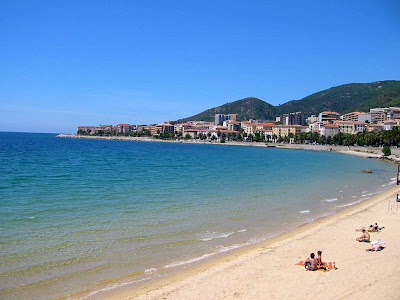Corsica is a French island in the Mediterranean Sea. It is located west of Italy, southeast of the Frenchmainland, and north of the Italian island of Sardinia. Mountains comprise two-thirds of the island, forming a single chain.
Corsica is one of the 27 régions of France, although it is designated as a territorial collectivity (collectivité territoriale) by law. As a territorial collectivity, it enjoys some greater powers than other French régions. Corsica is referred to as a "région" in common speech, and is almost always listed among the other régions of France. Corsica is split into two departments, Haute-Corse and Corse-du-Sud, with its regional capital in Ajaccio, the prefecture of Corse-du-Sud. Bastia, the prefecture of Haute-Corse, is the second-largest settlement in Corsica.

Although the island is separated from the continental mainland by the Ligurian Sea and is closer to Italy than to the French mainland, politically Corsica is part of Metropolitan France. After rule from the Genoa starting in 1282, Corsica was briefly an independentCorsican Republic from 1755 until its conquest by France in 1769. Corsica's culture contains elements of both the French and Italian, and its constitution while a Republic was written in Italian. The native Corsican language is recognised as a regional language by the French government.
The French emperor Napoléon Bonaparte was born in 1769 in the Corsican capital ofAjaccio. His ancestral home, Casa Buonaparte, is today used as a museum. The northern town of Calvi claims to be the birthplace of the explorer Christopher Columbus.


